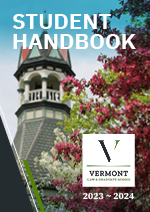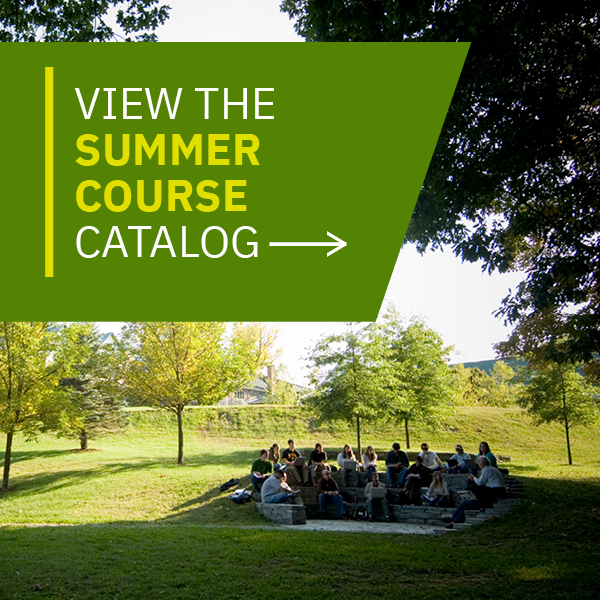Vermont Law and Graduate School invites leaders in the fields of environmental, energy, agriculture, animal advocacy, and international environmental law and journalism to serve as Distinguished Summer Scholars and Media Fellows in residency during the VLGS Summer Session. Each visiting scholar or fellow delivers a public lecture, participates in informal social events on campus, and is available to meet with students and faculty individually. These distinguished visitors are a significant intellectual resource for our summer students and also offer valuable networking opportunities.
2024 Distinguished Scholars
Environmental Law Scholar
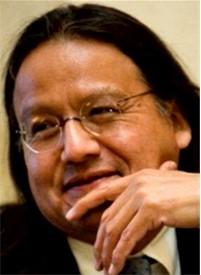
Gerald Torres, Professor of Environmental Justice and Professor of Law, Yale Law School
Gerald Torres has spent his career examining the intrinsic connections between the environment, agricultural and food systems, and social justice. His research into how race and ethnicity impact environmental policy has been influential in the emergence and evolution of the field of environmental justice. His work also includes the study of conflicts over resource management between Native American tribes, states, and the federal government.
Previously, Torres taught at Cornell Law School, the University of Texas Law School, and the University of Minnesota Law School, serving as an associate dean at both. He is also a former president of the Association of American Law Schools and served as deputy assistant attorney general for the Environment and Natural Resources Division of the U.S. Department of Justice during the Clinton administration.
Torres’s past work has examined how U.S. regulations have created racially or ethnically marginalized communities that bear a disproportionate share of environmental burdens and also has focused on developing strategies to improve governmental decision-making. He is also a leading scholar in critical race theory — a theoretical framework that examines questions of race and racism from a legal standpoint. His book The Miner’s Canary: Enlisting Race, Resisting Power, Transforming Democracy, coauthored with Lani Guinier, was described as “one of the most provocative and challenging books on race produced in years.”
Education:
LL.M. - University of Michigan Law School
J.D. - Yale Law School
A.B. - Stanford University
Sustainable Agriculture and Food Systems Scholar

Mavis Gragg, CEO HeirShares
Mavis Gragg is a self-described “death and dirt” attorney and conservation professional empowering families to use real estate as a source for intergenerational resiliency and wealth. She currently serves as the Director of the Sustainable Forestry and African American Land Retention and as the CEO of HeirShares, which is building groundbreaking technology to facilitate affordable solutions for family real estate ownership.
Mavis chairs the North Carolina Parks and Recreation Trust Fund Authority and previously chaired the board of Triangle Land Conservancy. In her free time, Mavis enjoys swimming, hikes, art, and flying her Mavic Mini drone.
Education:
J.D. & Master's - Pepperdine University School of Law
B.A. - University of North Carolina at Chapel Hill
Animal Law Scholar
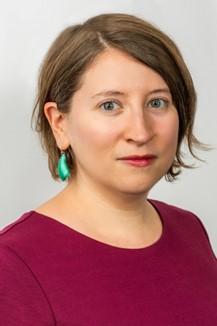
Iselin Gambert, Director, Fundamentals of Lawyering Program; Professor, Fundamentals of Lawyering; Faculty Co-Director, Animal Legal Education Initiative, George Washington University
Iselin Gambert joined the GW Law faculty in 2009 and currently teaches in and serves as the Director of the Fundamentals of Lawyering (FL) Program. She is also an advisor in GW's Inns of Court Program. Professor Gambert is an active member of the national and international legal writing and lawyering skills communities. In 2020 she was re-elected to a second four-year term on the Board of Directors of the Legal Writing Institute (LWI), a nonprofit organization dedicated to improving legal communication, building the discipline of legal writing, and improving the status of legal writing faculty across the country. She served as LWI's inaugural Communications and Public Relations officer and is currently the Board Secretary. From 2013 to 2017, she served as the co-editor-in-chief of the Second Draft: The Magazine of the Legal Writing Institute. She also served on the Site Committee for the 2014 and 2016 LWI Biennial Conference.
Professor Gambert is an internationally recognized scholar whose work spans multiple fields including legal writing and writing center pedagogy, feminist legal theory, animal law, critical animal studies, critical race theory, and food law and policy. Her goal with her current scholarship is to ask timely questions about the ways in which political, legal, and cultural forces impact our daily lives and our relationship with food and other animals. In 2022 her article "Should the Great Food Transformation be fake-meat free? Considering strategies for a future of food that is kinder to people, animals, and the planet," was published in a special Future of Food volume of the Business Entrepreneurship & Tax Law Review, and her article "I Want You to Panic: Leveraging the Rhetoric of Fear and Rage for the Future of Food" was published in the Journal of Food Law & Policy.
Professor Gambert is the faculty co-director of GW Law’s Animal Legal Education Initiative, a project dedicated to developing Animal Law as a stand-alone legal discipline that is fully integrated into the legal academy. In 2023 she was an invited participant of the Law Lecturer’s Workshop hosted by the Cambridge Centre for Animal Rights Law. She also developed and teaches a course called Gender, Race, Species, which explores power, privilege, and oppression in law and society through the lens of gender, race, and species.
Professor Gambert spent the 2017-18 academic year as a visiting researcher at the Lund University Critical Animal Studies Network in Lund, Sweden, where she co-taught an interdisciplinary course called Critical Animal Studies - Animals in Society, Culture and the Media. She has written a number of op-eds and scholarly articles on the subject of milk, one of the most ubiquitous and heavily regulated substances on the planet—and perhaps one of the most contested. Her 2019 Brooklyn Law Review article "Got Mylk? The Disruptive Possibilities of Plant Milk" was identified as a “Notable & Quotable” in the Wall Street Journal. She was also selected to be part of the U.S. Feminist Judgments Project, for which she wrote a commentary on Frontiero v. Richardson, which was published in the 2016 book Feminist Judgments: Rewritten Opinions of the United States Supreme Court by Cambridge University Press.
In 2014, Professor Gambert was awarded an Endeavour Executive Fellowship and spent three months as a Visiting Scholar at Melbourne Law School (MLS), the top-ranked law school in Australia. While at MLS, she collaborated with faculty at three area law schools on best practices for implementing wellness and professional development training in legal education. She also conducted workshops for Australian law faculty and legal professionals on best practices in legal writing, training, and strategies for providing effective written feedback on legal writing assignments.
Prior to joining the faculty, Professor Gambert clerked for Judge Ronna Lee Beck at the DC Superior Court, Civil Division, and worked as an attorney and legal writer for a local public interest advocacy organization. She graduated with honors from GW Law, where she was a two-year writing fellow in the Legal Research and Writing Program, the executive notes editor of the American Intellectual Property Law Association Quarterly Journal, and an editor and publication committee member of the GW Law Student Bar Association Student Legal Writing Review. She was a clinical fellow in the International Human Rights Clinic and received the National Association of Women Lawyers Outstanding Law Graduate Award upon graduation. She is barred in New York State and the District of Columbia.
Education:
J.D. - George Washington University
B.A. - Pomona College
Climate Law Scholar
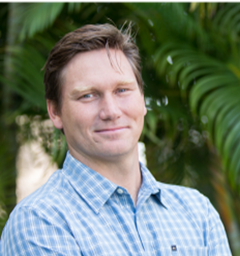
Richard Wallsgrove, Associate Professor; Co-Director, Environmental Law Program; Director, Environmental Law Clinic, William S. Richardson School of Law, University of Hawai'i at Mānoa
Richard Wallsgrove serves as the faculty advisor to the Environmental Law Program. He teaches in a variety of areas, including energy policy, international environmental law, business associations, and contracts. He also works with the Pacific Regional Integrated Sciences and Assessments program to analyze climate adaptation policies for freshwater resources in island settings.
Prior to joining the law school, he served as Policy Director for the Blue Planet Foundation, where he advocated for clean energy policies including Hawaii’s first-in-the-nation 100% renewable portfolio standard. Among other distinctions, he served as an editor-in chief of the University of Hawai‘i Law Review, and in 2014 he was named to the Pacific Business News “Forty Under 40” list of community and business leaders in Hawai‘i.
Education:
J.D. - University of of Hawai‘i William S. Richardson School of Law School of Law
M.S. - University of Hawai‘i School of Ocean and Earth Science and Technology
B.S. - University of California at Berkeley
Energy Law Scholar
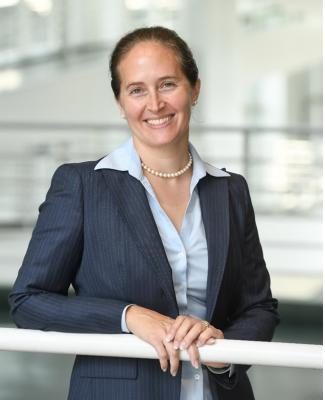
Heather Payne, Professor Law, Seton Hall University School of Law
Heather Payne is a Professor at Seton Hall University School of Law and a leader in the areas of energy law, environmental law, and evolving regulatory policy. A former chemical engineer and corporate executive, she brings a deep understanding of both the technical and economic implications of policies to address new realities in a carbon- and water-constrained world. Before joining the Seton Hall law faculty in 2018, Professor Payne was Fellow and Assistant Director of the Center for Climate, Energy, Environment and Economics (CE3) at the University of North Carolina School of Law. Prior to entering academia, she clerked for Judge Martha Geer on the North Carolina Court of Appeals, and worked with Sears Holdings Corporation and Honeywell International. Professor Payne holds a BChE in Chemical Engineering where she graduated with High Honors from the Georgia Institute of Technology, and a J.D. from University of North Carolina School of Law, where she graduated with High Honors and served as a member of the North Carolina Law Review and Symposium Editor for Environmental Law Project.
Education:
J.D. - University of North Carolina School of Law
B.Ch.E. - Georgia Institute of Technology

